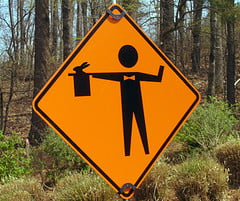“The writer who is a real writer is a rebel who never stops.”
William Saroyan
In the literary world, there are many rules, regulations, and guidelines to writing properly and following traditional formats and styles of writing. But true writers don’t follow these rules—they break them, they bend them, they do whatever they want to do in order to write the most creative stories they can think up. True writers never stop being rebels; they break free from all norms and structures so that their story can be told with the most powerful voice possible. My success was the direct result of fearless rebellion against common norms and traditional structures in literature.
Becoming a writer is tough and the harsh reality is you might not succeed. Of course it’s worth trying, but you should be aware of what you’re getting into. You can work on your craft for hours and still struggle to write an interesting piece. There are some days when all your ideas seem like complete crap and days when every sentence flows effortlessly from your mind onto the page. But it doesn’t make any difference how good or bad things are if nobody sees it or cares about what you have to say.
The three steps I take before I start writing are:
- Ignore the opinions of everyone else.
- Create my own rules and break them if I want.
- Do what I love, but also make sure that what I’m doing is for me, not for someone else, and not for anyone other than myself, and the creative process itself.
Also, these are seven things every writer should do in order to be successful:
- Actively create content that their readers need and want to read—spend time exploring trends to figure out what people are interested in reading.
- Ask for feedback from your audience—on both the quality of your content as well as the delivery methods you use, things like your voice or conversational style.
- Be consistent—it’s difficult to get momentum if you produce a lot one day and then nothing for weeks on end. So, set yourself a schedule, even if it’s working just a few hours each day, and stick to it!
- Engage with your followers—be generous with commenting on other blogs, as well as replying to comments on your own blog. Take a genuine interest in what they’re saying.
- Challenge yourself by doing new things—it doesn’t have to be drastic but maybe write about something outside your comfort zone once in a while.
- Have fun with writing—when you enjoy what you do, other people can tell and they’ll want to keep reading!
- Know who you are and make sure that shines through in your posts—this is important because some people follow bloggers for who they are, not just what they post.
In addition to these tips, here are five ways to overcome writer’s block. While this may not be enough at first, you will, at the very least, have a place to start. Next time you hit that stumbling block, try one of these things and you should be back on track in no time.
- Talk it out with a close friend or family member. Talking about what’s been blocking you helps take the pressure off yourself. You don’t have to do it all alone, find someone who will listen and be honest with you so they can offer advice on how to fix things.
- Exercise. Doing an intense workout or getting outside for a brisk walk or yard work always makes me feel better.
- Be confident. This can be a tricky one to explain. If you believe in yourself, then there’s no reason why your writing shouldn’t reflect that. So, if you don’t have confidence in yourself, find some (even if it’s pretend), because that belief will show through in your writing. Confidence is not just about self-belief; it also comes from doing things and achieving results. Start small and build up to bigger challenges.
- Write something new. Don’t beat yourself up by forcing yourself to write something else when you’re feeling stuck. Take this as an opportunity to explore new creative territory that might provide inspiration! After all, we learn more when we’re open minded than when we stubbornly hold onto old ideas. Take the plunge and see where it takes you.
- Get Support. There are plenty of resources available for those suffering from writers’ block. Meetup groups, workshops, conferences, blogs—you name it! Also, find people in your daily life who are happy and confident in themselves; it will rub off on you! Also, ask your peers how they got over their own hurdles in life, then try to apply their words of wisdom to your own life. So, the next time you feel lost in your craft, remember that help may be only a Google search away.
Finally, here are five truths I have learned about being a writer:
- A writer needs to be a rebel. The ability to accept risks and reject what’s expected is just as important as passion and talent.
- When you’re a writer, everything becomes a vehicle for expression. There are no rules in art—or in writing, really. This is liberating. It means there’s no right or wrong way to write; it’s all about finding the voice that speaks loudest from your soul.
- Writing doesn’t always pay well, but the craft does give you autonomy—whether you want it or not—to stand up for yourself and say no to things you don’t want to do, say, wear, or eat.
- You shouldn’t hang on what other people think of your work. Some people will tell you that a novel is too long, or too short. They’ll tell you it has too many characters or not enough conflict. But, this isn’t about them—it’s about your story and how best to tell it so readers can feel the emotions that drive us through our lives: hope, fear, anger, love, etc. When it comes down to it, that’s all a writer wants.
- Lastly, writing is about finding that connection with someone else who “gets it.” Writing is, at its core, all about sharing our life experiences with others. What you write allows you to bring others into your world where anything is possible and where we have total control over every sentence until we hit publish. After that, the words will be read as others will please.
Colophon
The image featured in this article is titled Percent.
Article credit goes to my wife, Amelia Phoenix Desertsong, who suggested the idea for this article.
Asides
Thomas Slatin, On Writing | Unsent Letters | Writing, Then And Now | How Writing Short Stories Can Improve Your Novel Writing Skills (And Writing In General) | Breaking Writing Rules: Why It’s OKAY To Revise As You Write!






YEAH!!!
Thanks, Lauren! I’m glad you agree. ❤️